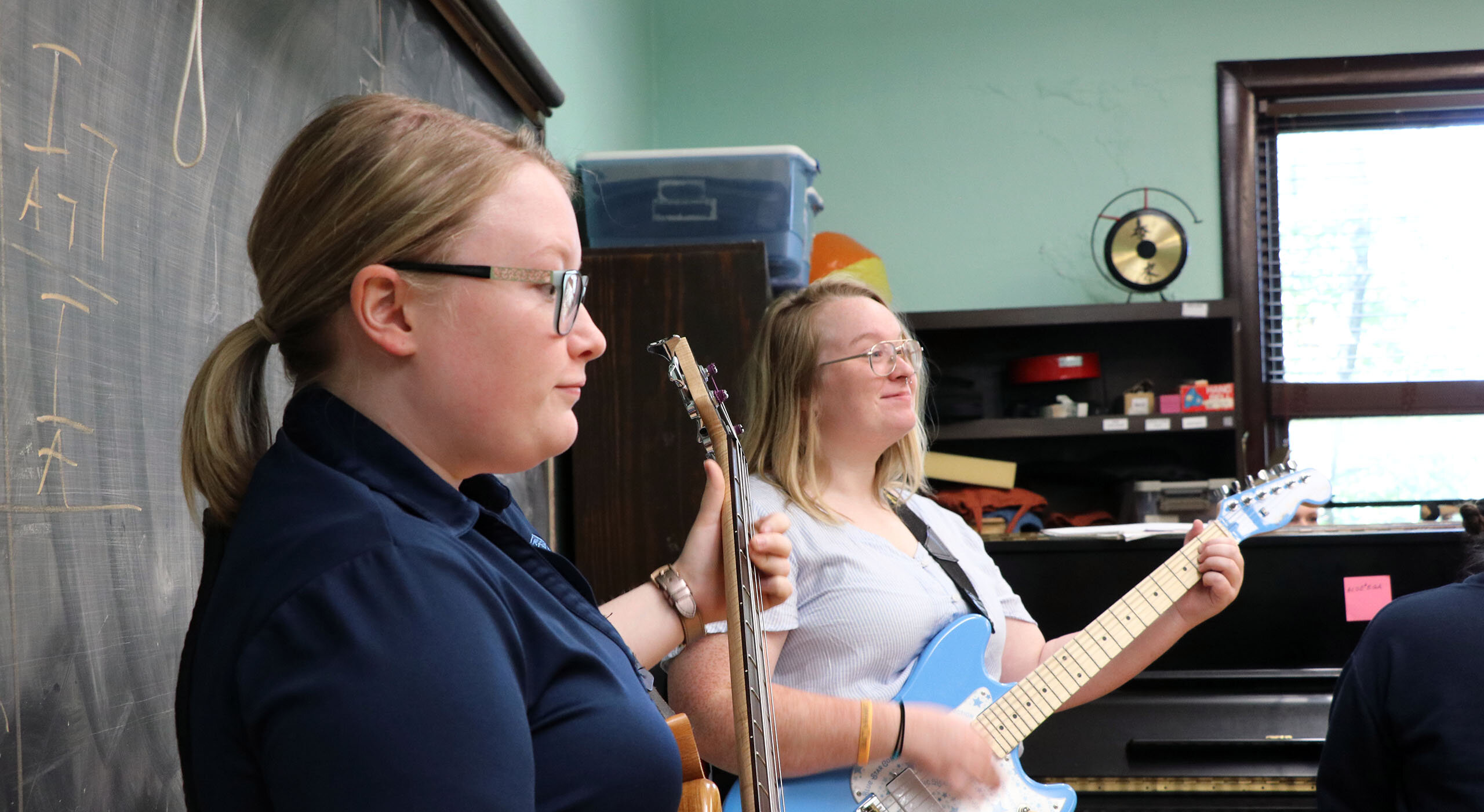
Music Therapy Equivalency
Music Therapy Equivalency Overview
If you have a degree in music, you may be ready for your next challenge: empowering others by becoming a music therapist. The music therapy equivalency program is tailored to meet the needs of each person who attends. You may be exempted from one or more of the requirements if you have previously taken an equivalent course or courses.
A professional music therapist must complete (a) an undergraduate degree in music therapy, or (b) an undergraduate degree in a related area and a music therapy equivalency program. Academic requirements include courses in music, music therapy, psychology, and related areas. Professional music therapists have also completed at least 1200 hours of clinical training, and have passed a board examination. This leads to the entry-level credential, MT-BC (Music Therapist-Board Certified).
Students begin observing music therapy sessions, conducted by professional music therapists and/or other music therapy students, in the first semester of Music Therapy practicum experience. Over the course of several semesters, students become more involved in the treatment process. These pre-internship (practicum) experiences will total approximately 200 hours. After completing course requirements, students must successfully complete a music therapy internship of approximately 1000 hours. Practicum and internship experiences are supervised.
Prerequisites
- Bachelor’s degree in music from an NASM (National Association of Schools of Music) school
- Minimum of 2.5 GPA on a 4.0 scale
- General Psychology (C- or better)
- Proficiency on voice and at least one accompaniment instrument upon entry
- Successful audition (link) on major/primary instrument (2 pieces of contrasting nature)
- Basic accompanying and vocal skills (piano and voice OR guitar and voice) on two songs
- Complete and send in the special application
What Does a Music Therapist Do?
According to the American Music Therapy Association, music therapists assess a person’s “emotional well-being, physical health, social functioning, communication abilities, and cognitive skills through musical responses”. In addition, music therapists design music sessions based on client needs. Applications and techniques may include:
- Instrumental or vocal improvisation
- Receptive music listening
- Song writing
- Song lyric discussion/analysis
- Music and imagery
- Music performance
- Learning through music
- Music and movement
- Music and other expressive arts
Who Does a Music Therapist Help?
A music therapist can work with a wide range of population and in a myriad of facilities. Music therapy can be used with individuals with:
- Developmental disabilities
- Mental health needs
- Substance abuse problems
- Physical disabilities
- Chronic or terminal illnesses
- Alzheimer’s Disease
- Dementia
- Autism
Music Therapy Jobs
A music therapist is trained to work in individual, small group, or large group settings at a myriad of facilities, including:
- Medical Hospitals
- Schools
- Nursing Homes
- Assisted-living Facilities
- Psychiatric Facilities/units
- Pediatric Units
- Rehabilitation Units
- Private Homes




